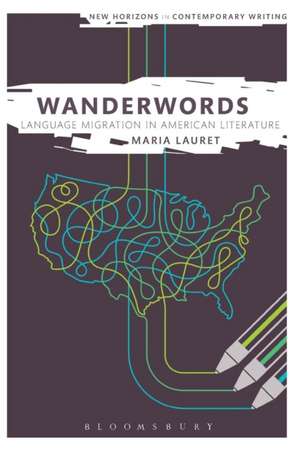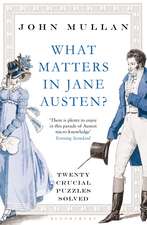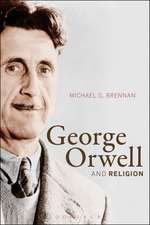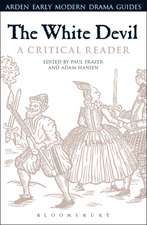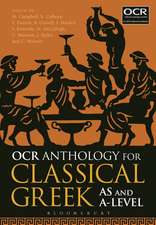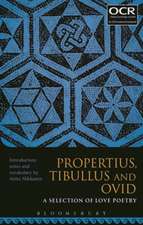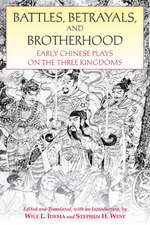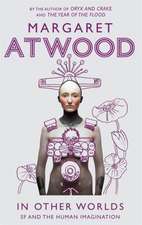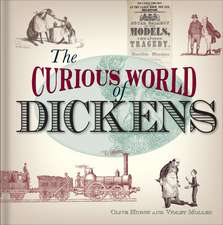Wanderwords: Language Migration in American Literature: New Horizons in Contemporary Writing
Autor Maria Laureten Limba Engleză Paperback – 23 mar 2016
| Toate formatele și edițiile | Preț | Express |
|---|---|---|
| Paperback (1) | 259.90 lei 6-8 săpt. | |
| Bloomsbury Publishing – 23 mar 2016 | 259.90 lei 6-8 săpt. | |
| Hardback (1) | 717.79 lei 6-8 săpt. | |
| Bloomsbury Publishing – 19 noi 2014 | 717.79 lei 6-8 săpt. |
Din seria New Horizons in Contemporary Writing
- 23%
 Preț: 190.41 lei
Preț: 190.41 lei - 30%
 Preț: 510.60 lei
Preț: 510.60 lei - 30%
 Preț: 510.60 lei
Preț: 510.60 lei - 22%
 Preț: 256.77 lei
Preț: 256.77 lei - 22%
 Preț: 257.21 lei
Preț: 257.21 lei - 22%
 Preț: 257.03 lei
Preț: 257.03 lei - 13%
 Preț: 257.59 lei
Preț: 257.59 lei - 22%
 Preț: 232.34 lei
Preț: 232.34 lei -
 Preț: 223.58 lei
Preț: 223.58 lei - 22%
 Preț: 224.58 lei
Preț: 224.58 lei - 22%
 Preț: 224.76 lei
Preț: 224.76 lei - 21%
 Preț: 217.17 lei
Preț: 217.17 lei - 21%
 Preț: 216.62 lei
Preț: 216.62 lei - 23%
 Preț: 197.52 lei
Preț: 197.52 lei - 23%
 Preț: 190.96 lei
Preț: 190.96 lei - 23%
 Preț: 192.64 lei
Preț: 192.64 lei - 23%
 Preț: 191.56 lei
Preț: 191.56 lei - 23%
 Preț: 191.67 lei
Preț: 191.67 lei -
 Preț: 190.68 lei
Preț: 190.68 lei - 30%
 Preț: 509.69 lei
Preț: 509.69 lei - 21%
 Preț: 541.71 lei
Preț: 541.71 lei - 30%
 Preț: 509.52 lei
Preț: 509.52 lei -
 Preț: 250.49 lei
Preț: 250.49 lei
Preț: 259.90 lei
Preț vechi: 296.65 lei
-12% Nou
Puncte Express: 390
Preț estimativ în valută:
49.73€ • 54.19$ • 41.91£
49.73€ • 54.19$ • 41.91£
Carte tipărită la comandă
Livrare economică 23 aprilie-07 mai
Preluare comenzi: 021 569.72.76
Specificații
ISBN-13: 9781501318979
ISBN-10: 1501318977
Pagini: 344
Dimensiuni: 156 x 235 x 18 mm
Greutate: 0.48 kg
Ediția:NIPPOD
Editura: Bloomsbury Publishing
Colecția Bloomsbury Academic
Seria New Horizons in Contemporary Writing
Locul publicării:New York, United States
ISBN-10: 1501318977
Pagini: 344
Dimensiuni: 156 x 235 x 18 mm
Greutate: 0.48 kg
Ediția:NIPPOD
Editura: Bloomsbury Publishing
Colecția Bloomsbury Academic
Seria New Horizons in Contemporary Writing
Locul publicării:New York, United States
Caracteristici
Demonstrates the potential richness of bi-and multilingual literary practice in readings of literature
Notă biografică
Maria Lauret is Reader in American Literature at the University of Sussex, UK, and has also taught in Spain and the United States. Her previous books are Liberating Literature: Feminist Fiction in America (1994), Alice Walker (2000, second edition, 2011) and the co-authored Beginning Ethnic American Literatures (2001). She is a founding editor of the journal Atlantic Studies and currently serves on the editorial advisory boards of The European Journal of American Culture and Textual Practice.
Cuprins
Acknowledgements Chapter 1Beginning Wanderwords: language migration in American literature Chapter 2 How Not to Tame a Wild Tongue: wanderwords in theory Chapter 3 The Promised Land, Lost in Translation: Mary Antin and Eva Hoffman's wanderwords Chapter 4With and without a Dutch Accent: the life-writing of Edward Bok, Dirk Nieland and Truus van Bruinessen Chapter 5 Richard Rodriguez's Spanish Chapter 6Fusion Writing: Bharati Mukherjee's dangerous languages Chapter 7"Words Cast to Weather:" Theresa Hak Kyung Cha's Dictée Chapter 8Escribir y Leer Bilingually: Spanish/English and Spanglish American literature in the twenty-first century Conclusion Notes Bibliography
Recenzii
Lauret argues that words have 'immigrated' into the English of American literature-'wanderwords' is her translation of Quintilian's term 'verba peregrina.' . The introduction is wide-ranging and cites various terms that might be synonymous, or overlapping. Lauret uses several postmodern literary and linguistic theories to assert how employing other languages is not code-switching but instead multilingual aesthetics that disrupt and shift power structures. Wanderwords starts with early-20th-century authors, then settles on late-20th-century "brown" writers (Richard Rodriguez's term). Interesting, dense, and profoundly nonlinear, the book includes an excellent bibliography and sources. Summing Up: Recommended. With reservations. Graduate students, researchers, faculty.
[This study] make[s] valuable contributions to the study of English literature in its broadest sense by reappraising in cognitive, hermeneutic, and aesthetic terms a wide range of heterolingual writing.
The title already gives away the generous theme of this book: that literature worth reading today is restless, non-conformist, adventurous, and practically impossible to catch up with, as vocabulary and grammar slip by language border controls to form neologisms and new paths. Admirably researched and clearly articulated, Maria Roth-Lauret's Wanderwords will stretch academic writing to acknowledge and to participate in the aesthetic and philosophical bounty of bi and multi-lingualism.
Maria Lauret's Wanderwords, its title derived from Quintilian, is anything but a dry exercise in rhetoric. Focusing on the many non-English words and phrases that have migrated into and become part of English-language texts, Wanderwords offers an unusual and fascinating entry point to major works by American writers who are concerned with migration and come from various migratory family backgrounds. Meticulously researched, Wanderwords examines major works from Mary Antin to Junot Díaz and from Richard Rodriguez to Bharati Mukherjee. In her lively prose Maria Lauret conveys many fresh and often paradoxical insights, as she shows her audience how to read creatively and multllingually. Wanderwords presents American literature in a new key.
From the formation of her argument, to the selection and reading of texts, Wanderwords is an original and brilliant application of critical acumen. After raising important questions, the answers Lauret pursues provide us with innovative ways of reading bi- and multilingual literature. This work transcends previous efforts in literary criticism and the art of translation to make sense out of the other languages that have appeared in U.S. American literature. New ideas require new words so Lauret forges the intriguing "linguascape," along with phrases like heterolingual aesthetics. Her style of writing is engaging and creates readings that turn tired heads in new directions. This is criticism with a future, making new ways of reading old texts that have become, if not part of the mainstream canon, then certainly part of the American ethnic canon. She also introduces new and previously untouched works that resonate well in the critical tune she composes. Lauret teaches us a way of reading multicultural literature that should become basic practice for future responses to bi- and multi-lingual texts. Her sharp and smart insights are savvy to the way languages work to divide, conquer and ultimately reconnect us to the humanity we all share.
An impressive and well-written book that will be a major contribution to American literary studies and beyond. Maria Lauret deploys the term 'wanderwords' to weave a conceptually rich analysis of writers and writing where the movements and relationships between languages are given their rightful, central place.
Maria Lauret's Wanderwords: Language Migration in American Literature is a fascinating exploration of the ways in which exciting new interpretative insights can be gained from a multilingual poetics. A must for all libraries.
[This study] make[s] valuable contributions to the study of English literature in its broadest sense by reappraising in cognitive, hermeneutic, and aesthetic terms a wide range of heterolingual writing.
The title already gives away the generous theme of this book: that literature worth reading today is restless, non-conformist, adventurous, and practically impossible to catch up with, as vocabulary and grammar slip by language border controls to form neologisms and new paths. Admirably researched and clearly articulated, Maria Roth-Lauret's Wanderwords will stretch academic writing to acknowledge and to participate in the aesthetic and philosophical bounty of bi and multi-lingualism.
Maria Lauret's Wanderwords, its title derived from Quintilian, is anything but a dry exercise in rhetoric. Focusing on the many non-English words and phrases that have migrated into and become part of English-language texts, Wanderwords offers an unusual and fascinating entry point to major works by American writers who are concerned with migration and come from various migratory family backgrounds. Meticulously researched, Wanderwords examines major works from Mary Antin to Junot Díaz and from Richard Rodriguez to Bharati Mukherjee. In her lively prose Maria Lauret conveys many fresh and often paradoxical insights, as she shows her audience how to read creatively and multllingually. Wanderwords presents American literature in a new key.
From the formation of her argument, to the selection and reading of texts, Wanderwords is an original and brilliant application of critical acumen. After raising important questions, the answers Lauret pursues provide us with innovative ways of reading bi- and multilingual literature. This work transcends previous efforts in literary criticism and the art of translation to make sense out of the other languages that have appeared in U.S. American literature. New ideas require new words so Lauret forges the intriguing "linguascape," along with phrases like heterolingual aesthetics. Her style of writing is engaging and creates readings that turn tired heads in new directions. This is criticism with a future, making new ways of reading old texts that have become, if not part of the mainstream canon, then certainly part of the American ethnic canon. She also introduces new and previously untouched works that resonate well in the critical tune she composes. Lauret teaches us a way of reading multicultural literature that should become basic practice for future responses to bi- and multi-lingual texts. Her sharp and smart insights are savvy to the way languages work to divide, conquer and ultimately reconnect us to the humanity we all share.
An impressive and well-written book that will be a major contribution to American literary studies and beyond. Maria Lauret deploys the term 'wanderwords' to weave a conceptually rich analysis of writers and writing where the movements and relationships between languages are given their rightful, central place.
Maria Lauret's Wanderwords: Language Migration in American Literature is a fascinating exploration of the ways in which exciting new interpretative insights can be gained from a multilingual poetics. A must for all libraries.
